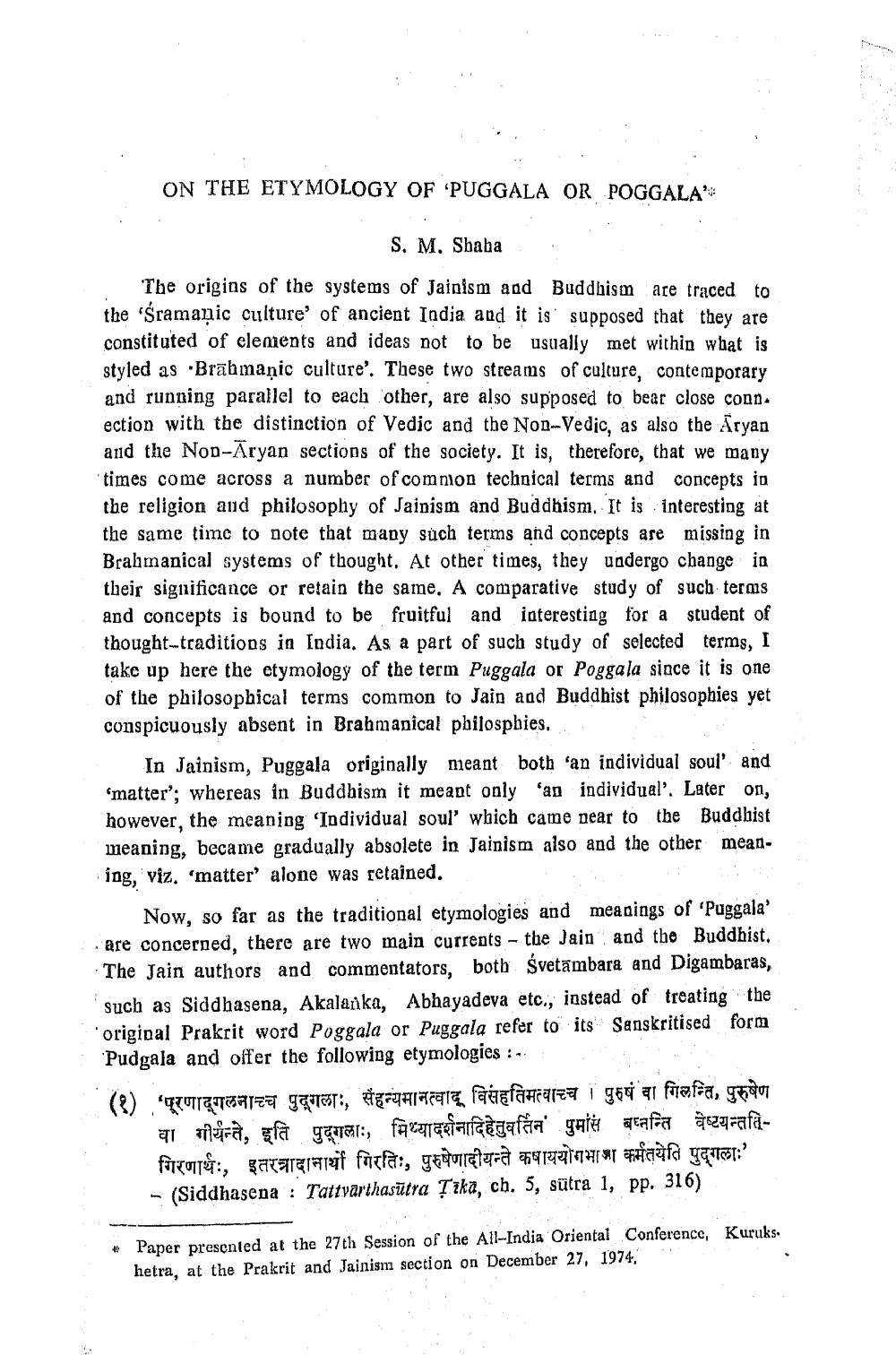________________
ON THE ETYMOLOGY OF PUGGALA OR POGGALA
S. M. Shaba The origins of the systems of Jainism and Buddhism are traced to the "Śramanic culture' of ancient India and it is supposed that they are constituted of elements and ideas not to be usually met within what is styled as Brahmanic culture'. These two streams of culture, contemporary and running parallel to each other, are also supposed to bear close coon. ection with the distinction of Vedic and the Non-Vedic, as also the Aryan and the Non-Aryan sections of the society. It is, therefore, that we many times come across a number of commion technical terms and concepts in the religion and philosophy of Jainism and Buddhism. It is interesting at the same time to note that many such terms and concepts are missing in Brahmanical systems of thought. At other times, they undergo change in their significance or retain the same. A comparative study of such teras and concepts is bound to be fruitful and interesting for a student of thought-traditions in India. As a part of such study of selected terms, I take up here the etymology of the term Puggala or Poggala since it is one of the philosophical terms common to Jain and Buddhist philosophies yet conspicuously absent in Brahmanical philosphies.
In Jainism, Puggala originally meant both 'an individual soul' and ‘matter'; whereas in Buddhism it meant only an individual'. Later on, however, the meaning 'Individual soul' which came near to the Buddhist meaning, became gradually absolete in Jainism also and the other meaning, viz. 'matter' alone was retained.
Now, so far as the traditional etymologies and meanings of 'Puggala', are concerned, there are two main currents - the Jain and the Buddhist. The Jain authors and commentators, both Svetambara and Digambaras, such as Siddhasena, Akalanka, Abhayadeva etc., instead of treating the
form 'original Prakrit word Poggala or Puggala refer to its Sanskritised
Pudgala and offer the following etymologies :
(१) 'पुरणाद्गलनाच्च पुद्गलाः, सैहन्यमानत्वाद् विसंहतिमत्वाच्च । पुरुषं वा गिलन्ति, पुरुषेण
वा गीर्यन्ते, इति पुद्गलाः, मिथ्यादर्शनादिहेतुवर्तिन' पुमांस बघ्नन्ति वेष्टयन्ततिगिरणार्थः, इतरत्रादानार्थो गिरतिः, पुरुषेणादीयन्ते कषाययोगभामा कर्मतयेति पुद्गलाः' - (Siddhasena : Tattvarthasūtra Țzka, ch. 5, sūtra 1, pp. 316)
+
Paper presented at the 27th Session of the All-India Oriental Conference, Kuruks. hetra, at the Prakrit and Jainism section on December 27, 1974,




